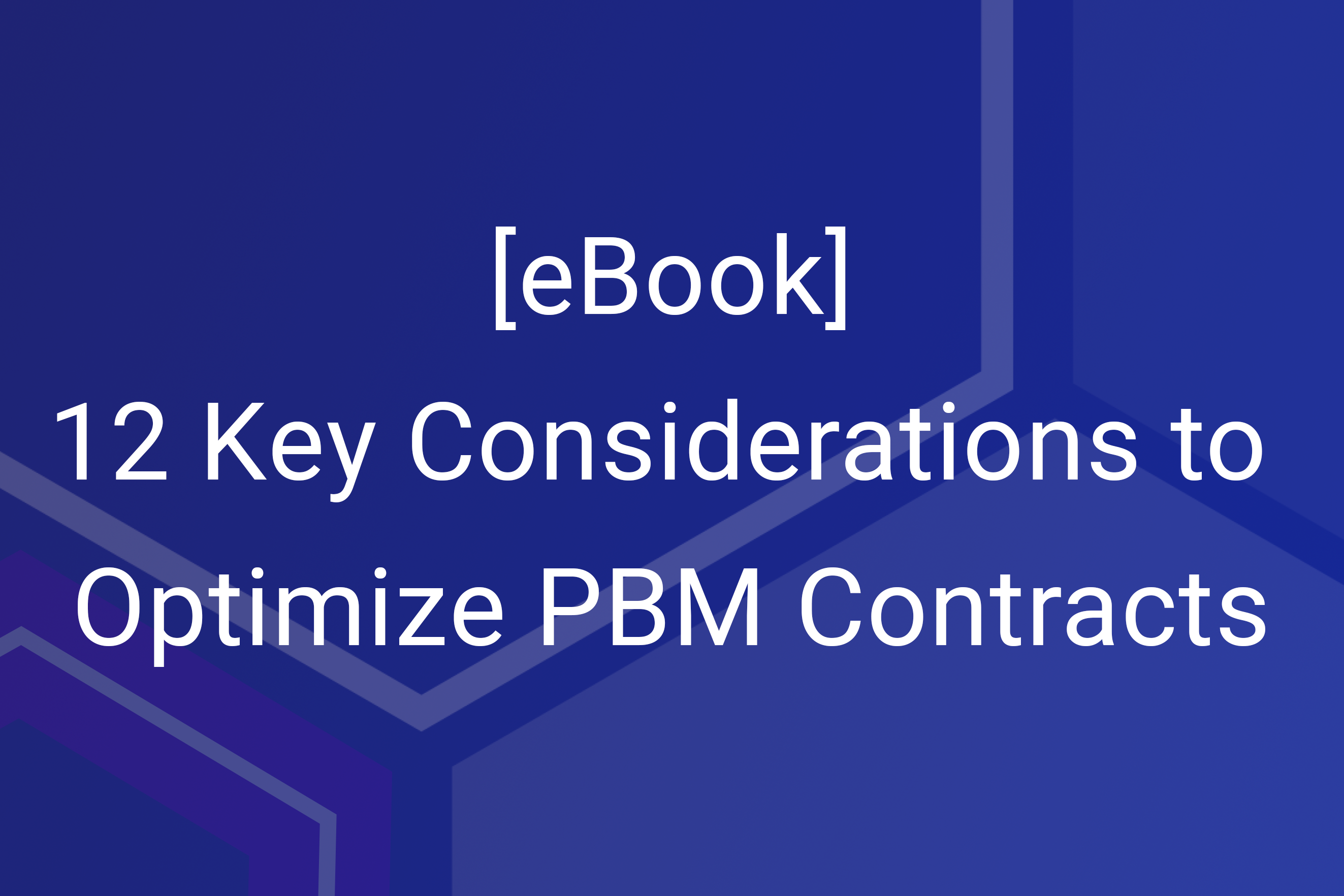Self-funded plans have experienced a significant increase in prescription drug costs in recent years, particularly with the rising prices of specialty drugs. This surge has posed a challenge for employers in managing their pharmacy expenses. Unlike other areas of healthcare benefits, pharmacy is one area where employers have the unique opportunity to negotiate and tailor plans to suit the specific needs of their employees.
PBM contracts pose an opportunity for negotiations to help drive plan savings, but some employers and their brokers are not sure where to start when it comes to driving down PBM contract costs. There are various strategies that help employers optimize pharmacy. The timing around when a broker and employer begin the PBM contract renewal or procurement process can be incredibly important when it comes to contract optimization. By strategically timing their negotiations and contracts, employers can unlock significant savings and improve the overall effectiveness of their pharmacy benefits program.
Assessing Contract Renewals and The Importance of Early Evaluation
Pharmacy contracts usually range from one to three years, with PBMs often urging employers to renew their existing contracts or opt for similar ones as the renewal date approaches. However, accepting these renewals without conducting thorough due diligence can result in missed opportunities for substantial cost savings. PBMs usually require a 90-day window for contract implementation, and the closer you get to this deadline, the less room there is for negotiation. That’s why it is essential to kickstart the contract evaluation process well in advance. By starting early, employers give themselves the best chance to secure favorable terms, maximize savings, evaluate offers, submit Request for Proposals (RFPs), engage in productive negotiations, and develop effective plan implementation strategies. To ensure a smooth and successful process, we recommend initiating these steps at least 9 months before the implementation date.

Benefits of Early Evaluation
Early evaluation offers various benefits for employers:
- Creating Competition: By encouraging a competitive environment through the solicitation of multiple PBM offers, employers can benefit from a diverse range of options, ultimately driving down prices and guaranteeing competitive pricing structures.
- Anticipating Shifts: Early assessment enables employers to anticipate shifts in member demographics and market dynamics, empowering them to make proactive adjustments and control costs effectively. Starting this process early also leaves room to evaluate historical claims data to better inform coverage needs for the population.
- Negotiating Favorable Terms: With sufficient lead time, employers can negotiate all contract offer options, ensuring alignment with their specific needs and objectives while leveraging favorable terms and clauses.
- Confident Implementation: Initiating the evaluation process early empowers employers to implement new contracts confidently and educate members on their benefits, leading to seamless transitions and increased member satisfaction.
Savings in Action
A grocery and food distribution company recently sought to identify multiple options for optimizing its pharmacy benefits. Starting 8 months ahead of the end of their existing contract, Truveris provided the client with 5 pharmacy vendor offers to evaluate, still leaving time for negotiation to identify further savings opportunities. If they had delayed their process and started assessing their options only 5 months before the end of their contract, they would have had only two bids, including their incumbent, with only 15.8% in deal improvements. The early initiation earned the client a 7% improvement in pharmacy deal improvements, with overall deal improvements of 22% from their incumbent PBM contract.

It is crucial for employers to kickstart the evaluation of their current contracts well in advance of a renewal. By taking this proactive approach, employers can strategically position themselves for negotiations, guarantee a smooth transition, and ultimately achieve substantial cost efficiencies. With the PBM contract implementation window set at around 90 days, it is important for employers to begin the process at least 9 months in advance of the renewal date to ensure favorable terms. To get started with ensuring your pharmacy contracts are optimized for the most favorable terms, contact Truveris pharmacy experts today.






